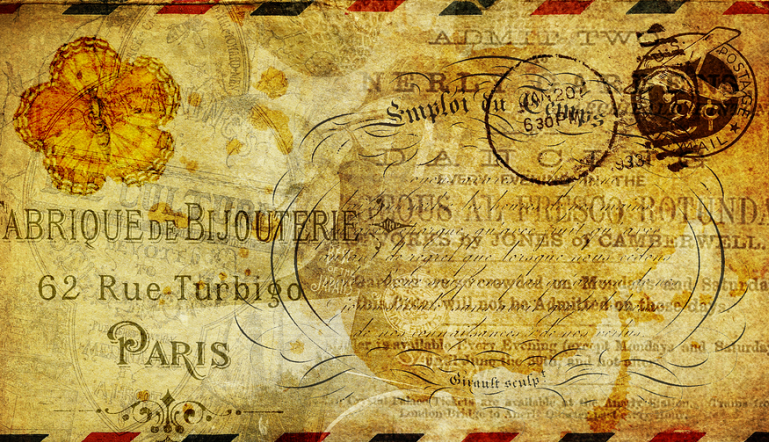Letter to a Fiction Teacher

Guest post by Greg Schutz
Dear Fred,
You don’t remember me. You would, perhaps–I hope so, at least–but you don’t.
I just wanted to tell you that I reread a story of yours the other day, and then, even though I didn’t really have the time to spare, I reread another one.
What I mean is that I got up, crossed the room to the bookshelf, replaced the book of yours I’d been reading, and–when I should have been thinking about my lesson plans for tomorrow, the papers I had to grade, the e-mails I had to answer–I took another book of yours down from the shelf, returned to the chair, propped my socked feet on the sill once more, and read. First “Ralph the Duck,” and then “Domicile.”
You would like hearing this, I think–not least because you’d find it gratifying. Who wouldn’t? We’re all eager for some sign that the work we do at the keyboard, once we send it out into the world, does more than simply travel like a Voyager spacecraft into deeper and deeper isolation. And you were more eloquent than most, in your essays, on the subject of the silence out of which the fingers begin tapping the keys, and the silence that descends again after the fingers stop.
You edited a book, Letters to a Fiction Writer, devoted largely to this topic, and to providing encouragement and advice to young writers in the face of this silence.
Fred, an admission: I have a problem with the tone authors sometimes take when offering advice to young writers. Without naming names, it’s something a couple authors in the book you edited are guilty of: war-weary and wise, they describe the hardships of the writing life. If you can do something else, they tell the young writer, anything at all, whether it’s practicing law or weaving baskets, please do it. It’s easier.
There’s a self-congratulatory undertone to such advice that turns me off. Look how hard I work, these authors are saying. Look how I’ve suffered for my art. I hear the sound of sinews stretching as the veteran author reaches over his own shoulder to pat himself on the back, and I find myself thinking of the scene in Jaws where Quint and Hooper, blind drunk, start comparing scars and telling stories: who’s had it worse?
This would be forgivable if writing were a labor on par with coal mining, roofing, or hospice nursing. But it’s not. Writing means sitting in a chair that’s as ergonomic as you can afford and, from time to time, moving your fingers. Granted, it also involves concentrating very hard for long periods, as well as contorting what wisdom and empathetic powers you have into a variety of gymnastic poses–but try telling this to a roofer coming down the ladder after ten hours on his knees on hot shingles. See what sympathy you get.
But I have to believe you knew this already, Fred. First of all, you understood what work was. This shines through in your fiction. Campus cops and truant officers and attorneys, plumbers and pediatricians and public-school principals: blue-collar, white-collar, or no-collar, your characters worked. Their labor colored and structured their lives, helping to provide the rich context out of which their narratives arose. In your hands, gainful employment became a literary tool–driving plots, fueling metaphors, and fleshing out fictional lives so that they might seem to stretch beyond the bounds of ten or twenty pages.
And, secondly, there’s the very different tone you took when writing about your own writing: “[W]hat I do when I write is amateur–I do it for love, because of compulsive need, out of a requirement that I cannot shake: that I justify my time on earth by telling stories. That’s what I do. I have to do it.”
Love and compulsion: still labor, perhaps, but labor of a different sort.
* * *
In the winter of 2006, you came to Ann Arbor for a semester as writer-in-residence at the University of Michigan, where I was earning my MFA. On the first day of class you sat, as I recall, at the front of my workshop, looking less like the big, bearded, jovial man in the author photo at the back of my copy of Don’t Tell Anyone than like a bear startled from its hibernation, blinking, cranky, hungry. (You were flying from your home in upstate New York to Michigan for one or two days a week just to teach this class–I’d like to think it was the commute that upset you, more than anything you read.) During workshops, you were opinionated and blunt. Nothing upset you more than the thought that an author might be letting a character–and, by extension, himself or herself–off easy.
So it was with some trepidation that I met you for coffee in the basement of the Michigan League the morning after a story of mine had been workshopped, a gray Tuesday near the end of January. The workshop had gone well enough, I thought–I was pleased, rightly or wrongly, that most of the criticism had been directed toward issues I’d been aware of, problems I’d already begun turning over in my own mind–and so I was not sure I was ready to be buffeted with new questions. My confidence in my story, that morning, felt a bit brittle.
As it turned out, though, I had nothing to fear. Your advice was carefully chosen, specifically targeted, and–I think now, looking back–right on the money. But more than just that one story in particular, you wanted to talk with me about writing in general. You wanted to hear where I was coming from, and offer some advice based on where you had come from. And at the end of the conversation, as we rose from the table and shook hands, you simply said, “You are a writer.”
From that day, Fred, I’ve never doubted it.
I’m still working on that story, though. Can you believe it? More than four and a half years later, and I still haven’t gotten it right, and I still can’t give it up. Love and compulsion, indeed.
* * *
You are a writer. I’ve since learned this was not an original assessment you made on the fly that morning, but rather something you told many young writers over the years you spent as a fiction teacher. As praise to the young and talented and naïve and guileless, it stands as an important reminder of how you regarded writing. For you, it was not something to warn the young writer against, nor was it something to praise her for. It was something she was, like it or not.
Love and compulsion. Why warn someone against something that she will be compelled to do anyway? Why praise her or yourself, if both of you are only doing what your must, in order to “justify [your] time on earth”?
You understood this, Fred. We don’t write for paychecks, tapping keys for the same reason a roofer tacks down shingles. We write because we are writers. It’s the not writing that is truly difficult. The not writing leaves scars.
Which is the other reason I think you’d like to hear about the way I read your stories the other night. The details would appeal, I imagine–the itchy orange chair rescued from the trash; the piles of adjunct-teaching work clogging my desk; the stories I compulsively read and reread, searching for clues to their making. For better or for worse–in either case, it’s not as though it feels to me like I have much of a choice–you seem to have been right. I seem to be a writer.
* * *
I’d like to ask you a question, Fred: What now?
I am teaching four sections of three classes at two schools. I’m making the kind of money that, let’s face it, leads a person to scrounge itchy orange chairs off the sidewalk. Worse, that stack of adjunct-teaching work on my desk–the lesson plans to write and papers to grade and e-mails to answer–keeps piling higher. I’m as busy with the not writing as I’ve ever been in my life, and frankly, Fred, it hurts.
I could use, I suppose, a little encouragement.
Of course, in a literal sense, you have no encouragement to give. You don’t remember me, Fred. You don’t remember anything, I’d wager. Or at least, as the poet, essayist, and undertaker Thomas Lynch would probably put it, you don’t care. Just a few weeks after we met for coffee in the basement of the Michigan League, while you were back in New York and I was in Portland, Oregon on what we here in Michigan call winter break, not spring, you passed away. A heart attack. You were sixty-four years old.
I knew you personally for only a little more than a month, so I feel somewhat sheepish, admitting that your death affected me as much as it did.
Because I can’t turn to you for advice, I’ve turned to your stories. This is perhaps fitting. You were a writer. You wrote because you must, and what you wrote justified, as you put it, your time on earth. About Hemingway, you once stated that “a writer’s life depends on doing the work. When that stops, the writer stops, too.” And if your own example stands as proof that sometimes the writer stops before the work is ready–your last book, the collection Rescue Missions, contains some of your finest stories–then it is also true that the work, still living, can speak with the writer’s voice.
So, what have I found, turning to your stories again? Encouragement, to be sure. They move and surprise me still, familiar with them though I am. They provide models of careful craft and deliberate technique, and offer me a target for my Bloomian anxiety of influence: because I so admire your stories, Fred, and because I might not be a writer today if I hadn’t picked up a volume of them at a pivotal time while I was an undergraduate, I want very much to outdo them. You’d understand, I’m sure.
Even more than encouragement, though, your stories offer admonishment. As I read them, I can see you at the head of my workshop classroom once again, grumbling and frowning and rubbing your beard. Don’t let yourself off the hook, Greg. Who cares if you’re busy? You’re a writer, and writers write. There are stories to be told. How else do you plan on justifying your time here?
Thank you, Fred. I am still your student.
With admiration,
Greg
This is Greg’s fourth post for Get Behind the Plough.



